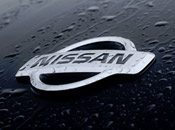Save on 1993 Nissan Truck Car Insurance Quotes
Searching for better insurance rates for your Nissan Truck? Locating better insurance prices for your Nissan Truck can be a lot of work, but you can learn these tips to save time.
There are both good and bad ways to buy insurance so you’re going to learn the best way to get price quotes for a Nissan and find the lowest possible price either online or from local insurance agents.
Compare Quotes for Insurance Coverage
Performing a rate comparison can take hours if you don’t utilize the most efficient way to do it. You could spend your day talking to insurance companies in your area, or you could save time and use the internet to get rate comparisons in just a few minutes.
Many companies enroll in a system where prospective buyers send in one quote, and at least one company can give them a price based on that data. This eliminates the need for quotation requests to each individual insurance coverage company. To compare pricing click here (opens in new window).
The single downside to pricing coverage this way is that consumers can’t choose the insurers to receive prices from. So if you want to choose specific providers for rate comparison, we put together a list of low cost insurance coverage companies in your area. View list of insurance companies.
Whichever method you choose, ensure you’re using the exact same deductibles and coverage limits for each comparison quote. If the quotes have higher or lower deductibles it will be next to impossible to decipher which rate is best.
When might I need an agent?
When buying the best car insurance coverage, there really is not a “perfect” insurance plan. Each situation is unique.
Here are some questions about coverages that can help discover whether or not you may require specific advice.
- Should I buy full coverage?
- Does coverage extend to a rental car in a foreign country?
- Should I buy more coverage than the required minimum liability coverage?
- Will my insurance pay for OEM parts?
- Is my state a no-fault state?
- How can I force my company to pay a claim?
- Do I need rental car coverage?
- Does insurance cover damages from a DUI accident?
- Should I drop comprehensive coverage on older vehicles?
If you’re not sure about those questions, then you may want to think about talking to an insurance agent. To find lower rates from a local agent, simply complete this short form. It only takes a few minutes and can help protect your family.
Insurance specifics
Having a good grasp of insurance can be of help when determining which coverages you need for your vehicles. The coverage terms in a policy can be impossible to understand and nobody wants to actually read their policy.
Comprehensive coverage (or Other than Collision)
This covers damage from a wide range of events other than collision. You first must pay your deductible and the remainder of the damage will be paid by comprehensive coverage.
Comprehensive insurance covers claims such as fire damage, damage from a tornado or hurricane and a tree branch falling on your vehicle. The most you’ll receive from a claim is the market value of your vehicle, so if the vehicle is not worth much it’s not worth carrying full coverage.
Insurance for medical payments
Med pay and PIP coverage kick in for expenses for things like X-ray expenses, surgery, chiropractic care, ambulance fees and dental work. They can be used to cover expenses not covered by your health insurance policy or if you lack health insurance entirely. Medical payments and PIP cover not only the driver but also the vehicle occupants and will also cover if you are hit as a while walking down the street. PIP coverage is not an option in every state and may carry a deductible
Collision coverage
Collision insurance covers damage to your Truck caused by collision with an object or car. A deductible applies and the rest of the damage will be paid by collision coverage.
Collision can pay for things like backing into a parked car, sideswiping another vehicle and colliding with another moving vehicle. Collision is rather expensive coverage, so you might think about dropping it from older vehicles. It’s also possible to increase the deductible to get cheaper collision coverage.
Liability coverages
This can cover damage or injury you incur to other’s property or people. This coverage protects you against other people’s claims, and does not provide coverage for your own vehicle damage or injuries.
Liability coverage has three limits: bodily injury for each person injured, bodily injury for the entire accident and a property damage limit. Your policy might show liability limits of 100/300/100 that means you have a $100,000 limit per person for injuries, a per accident bodily injury limit of $300,000, and a total limit of $100,000 for damage to vehicles and property. Occasionally you may see a combined limit that pays claims from the same limit and claims can be made without the split limit restrictions.
Liability coverage protects against claims like bail bonds, repair costs for stationary objects, court costs and medical services. How much liability should you purchase? That is a personal decision, but you should buy higher limits if possible.
Uninsured Motorist or Underinsured Motorist insurance
Your UM/UIM coverage protects you and your vehicle’s occupants from other motorists when they either are underinsured or have no liability coverage at all. It can pay for injuries to you and your family as well as your vehicle’s damage.
Due to the fact that many drivers only carry the minimum required liability limits, their limits can quickly be used up. That’s why carrying high Uninsured/Underinsured Motorist coverage is very important. Most of the time the UM/UIM limits are identical to your policy’s liability coverage.

